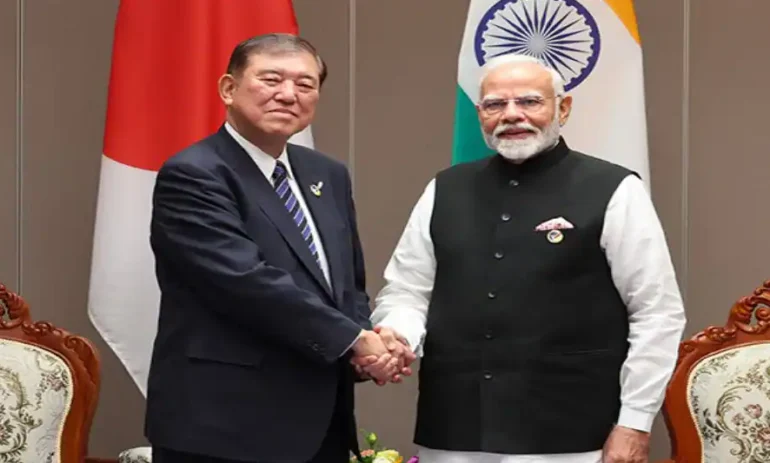New Delhi: India is set to take a big leap in its transport sector as the much-awaited Mumbai-Ahmedabad bullet train project is expected to become operational by 2027. This was confirmed by India’s Ambassador to Japan Sibi George ahead of Prime Minister Narendra Modi’s visit to Tokyo.
He highlighted Japan’s key role in the development of India’s key infrastructure, especially the railway sector. “Japan has been a key partner in many major infrastructure initiatives in India, especially in railways. I can say with full confidence that by 2027, a train will start running on the Mumbai-Ahmedabad corridor. I stick to that timeline,” he said confidently.
Strategic significance of Modi’s Japan visit
Prime Minister Modi’s visit to Japan, scheduled for Friday (August 29), has strategic and diplomatic significance. As both countries are seen as stabilizing forces in the Indo-Pacific region, the visit is expected to strengthen bilateral ties and chart a comprehensive vision for the future.
Ambassador George described India-Japan relations as based on shared civilisational values and mutual respect. He recalled how the strategic partnership was further strengthened when Prime Minister Modi and late Japanese Prime Minister Shinzo Abe formalized the “Special Strategic and Global Partnership” in 2014.
He emphasized that the visit will provide an opportunity to review the progress made so far and chart a new roadmap covering critical minerals, advanced technology and new areas of cooperation.
Japanese investments likely to increase
A major highlight of this diplomatic engagement will be economic cooperation. Japanese Prime Minister Shigeru Ishiba has proposed investments worth Rs 5.96 lakh crore in India over the next decade.
Ambassador George emphasized Japan’s continued support to India’s economic transformation and called it a “reliable partner” in the country’s development journey over the next 25 years.
He noted that the investment commitment made in 2022 (five trillion yen over five years) is already nearing completion, and the target of four trillion yen has been achieved. The upcoming visit is expected to start a new round of momentum, and announcements that will further accelerate this strategic cooperation are likely.
Defence ties to be strengthened
The summit could also bring significant progress in the area of security cooperation. George hinted at a possible review of the 2008 India-Japan Security and Defence Agreement, to align it with the emerging regional and global landscape.
“This visit will produce several important outcome documents, including a joint statement. The time has come to revisit the 2008 agreement to reflect today’s changing security environment,” he said.
Promoting Indian talent in Japan
Japan faces a projected shortage of 7,90,000 skilled workers by 2030, and India is seen as a natural partner to fill this gap.
The ambassador said that people-to-people ties between the two countries are strong, but the actual numbers are low.
He emphasised the urgent need to increase the presence of Indian professionals and students in Japan and expressed confidence that steps would be taken to address this gap in the near future.
Indo-Pacific and Quad Agenda
With India hosting the Quad Summit this year, the Indo-Pacific will continue to be a focus of strategic dialogue between the two leaders.
George described the Quad (which comprises India, Japan, Australia and the United States) as the most important multilateral structure in the Indo-Pacific region and said that when two leading countries of the region come together, its strategic future is sure to be discussed.
Apart from being a technological milestone, India’s bullet train project reflects the sweeping transformation taking place in India’s infrastructure and diplomacy. With Japan being a key ally and the completion of the Mumbai-Ahmedabad corridor, 2027 promises to usher in a new era in India’s high-speed rail travel.

